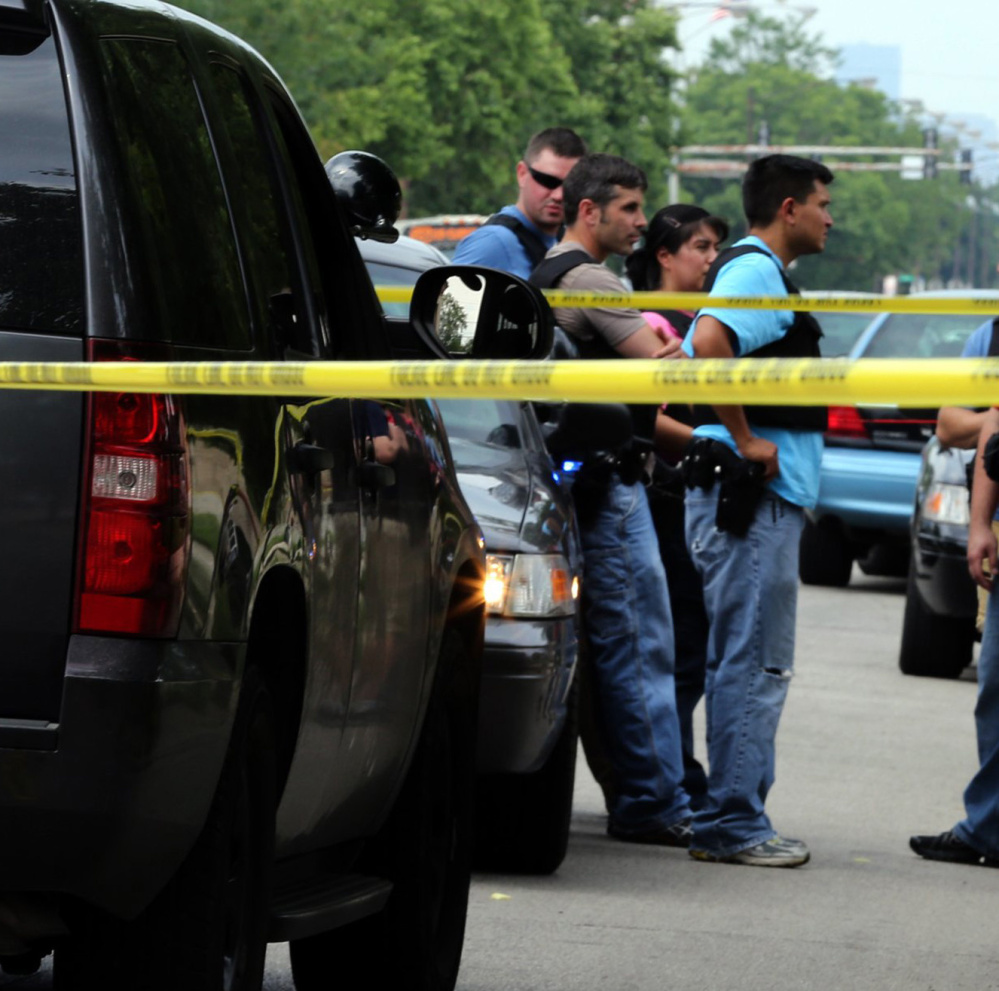Fatal shootings of civilians by police officers are less common in states with stricter gun laws than they are in states that take a more relaxed approach to regulating the sale, storage and use of firearms, new research says.
A study published this month in the American Journal of Public Health has found that fatal police shootings were about half as common in states whose gun laws place them in the top 25 percent of stringency than they were in states where such restrictions ranked in the bottom 25 percent.
The new findings draw from an analysis of 1,835 firearms-related deaths involving a police officer in the United States – all such fatalities reported in the 22 months following Jan. 1, 2015. It found that, of 42 laws enacted by states, the ones most strongly linked to lower fatal police shootings were those that aimed to strengthen background checks, to promote safe firearm storage and to reduce gun trafficking.
“We suspect that because these states have more robust gun laws, they’re better able to keep guns out of the hands of the wrong people,” said the study’s lead author, University of Indianapolis psychology professor Aaron Kivisto. The likely result, he suggested, is that police in such states “are just less likely to encounter people in circumstances where they shouldn’t have a gun.”
The association held up even after researchers accounted for state differences in the density and demographics of its citizens.
The study results add to a broad pattern of findings about states’ rates of gun ownership, which largely rise and fall along with gun-related suicides, accidental firearm injuries and domestic violence deaths.
New Mexico, Wyoming, Alaska, Oklahoma and Arizona led the country in rates of fatal police shootings, which were calculated as the number of such deaths per 1 million state residents. All but Oklahoma had among the most relaxed gun laws on their books.
Rhode Island, New York, Connecticut, Massachusetts and Illinois were among the states with the lowest rates of officer-involved fatal shootings. All had gun laws that placed them among the nation’s most restrictive states.
Some states bucked the national pattern by maintaining both few gun restrictions and low rates of officer-involved fatal shootings. This group included Maine, North Dakota, New Hampshire and Indiana.
Send questions/comments to the editors.



Comments are no longer available on this story